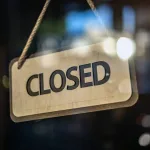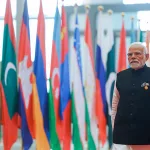The recent Supreme Court decision allowing divorced Muslim women to claim alimony under Section 125 of the CrPC has brought back memories of the Shah Bano case, a pivotal moment in Indian legal history.
Shah Bano had successfully secured her right to maintenance through the judicial system under the same legal provision. Initially, the Rajiv Gandhi government supported the Supreme Court’s decision, but later, due to electoral pressures and the influence of Muslim clergy, it diluted the verdict through new legislation. This move was viewed as one of Rajiv Gandhi’s major political missteps, leading to lasting repercussions.
The Shah Bano verdict ignited one of the most substantial and fervent Muslim protests that India had witnessed since its independence. However, the recent Supreme Court decision on alimony for divorced Muslim women has elicited a notably quieter response from the Muslim clergy. This change may be attributed to the clergy’s diminished influence and their inability to pressure the government, given the new political dynamics at the center.
The Shah Bano case, along with the recent judgment on alimony for divorced Muslim women, has sparked a debate on whether minority rights can justify gender inequality.
Can minority institutions be allowed to promote obscurantism and gender inequality? Should the autonomy of minority institutions override the principles of gender justice? Do governments have the mandate to intervene in minority institutions when issues of rights, justice, and equality are at stake?
The answer to these dilemmas is clear: The government has both the authority and responsibility to intervene when necessary. Minority institutions must not be allowed to exploit autonomy to perpetuate obscurantism or justify gender inequality. Justice and equality must prevail as fundamental pillars of any modern democracy.
While it is important to respect the autonomy of minority groups to preserve their cultural and religious identities, this respect should always be subordinate to the principles of justice and equality.
These discussions are important as they explore the balance between cultural autonomy and constitutional rights in India, reminding us to ensure that our legal systems promote equality and justice for everyone, regardless of their religious or cultural background.
This approach protects individual rights within minority communities and supports broader societal values. Since independence, we have witnessed a troubling trend among Indian Muslim clergy: whenever state institutions propose positive reforms, the clergy oppose them, alleging interference with Islam, even though these reforms align with core Islamic principles.
This opposition often stems from the clergy’s insecurities and fear of losing relevance if these progressive changes are enforced. This approach not only hinders genuine progress but also misrepresents the true spirit of Islam’s adaptability and commitment to justice and equality.
Consider the case of triple talaq. The Quran, the supreme authority in Islam, does not endorse instant triple talaq. Despite this clear stance, the bewildered clergy endorse it as part of Sharia.
The Quran outlines a well-defined procedure for divorce, emphasizing arbitration before pronouncing talaq. Additionally, the requirement of a three-month waiting period ensures the possibility of reconciliation among the discordant couple.
This period allows time for both parties to reconsider and potentially reconcile their differences, reflecting Islam’s principles of justice and compassion. Similarly, the Quran contains several verses emphasizing that divorce is not favored in the eyes of God. However, if a couple decides to part ways after seeking arbitration, the Quran instructs men to treat their divorced wives with fairness and kindness, even after the marriage has ended.
For example, Surah Al-Baqarah (2:241) highlights the importance of being fair and compassionate towards women, ensuring they receive support and are not left in a vulnerable position after divorce. The Quran’s message of justice and equality holds timeless significance, but the methods and approaches to achieve these ideals can vary according to different times and societies. It is crucial for modern societies to adapt and reform in accordance with contemporary needs.
This adaptation ensures that justice and equality are effectively established and upheld. The current situation with the outdated Muslim clergy is reminiscent of the time when the British abolished the practice of Sati. Just as conservatives and radicals opposed this progressive reform back then, today’s outdated clergy resist modern reforms, claiming they conflict with Islam. In reality, the clergy often fights to preserve its relevance as it senses its influence waning. It is high time to move away from medieval mindsets.
This rigid stance from the Muslim clergy poses a significant barrier for Muslim women striving to secure their Quranic and constitutional rights. The time has come to revamp Muslim religious institutions by incorporating intellectuals from the Muslim community who can faithfully interpret religious texts while embracing core democratic ideals.
Reforming these institutions does not entail undermining faith; rather, it involves harmonizing religious practices with contemporary conceptions of human rights and gender equality.
(Author is the senior researcher at Central University of Kerala. He can be reached at [email protected])








